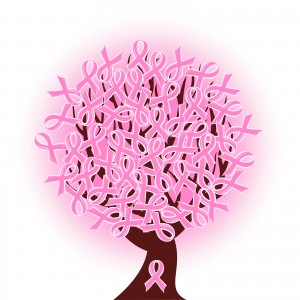 Blue Cross Blue Shield of North Carolina is committed to preventive care maintenance and women’s health. This may come as a surprise, but recent studies have shown that heart disease, not breast or cervical cancer, is the No. 1 killer of women. And although a heart attack strikes someone about every 34 seconds, many women often miss the signs, thinking they are due to less life-threatening problems like acid reflux, the flu or menopause. A heart attack occurs when the blood flow that brings oxygen to the heart muscle is severely reduced or cut off. This happens for multiple reasons, but primarily because the arteries that supply the heart with blood have narrowed from a buildup of fat, cholesterol and plaque. Sometimes women think the signs of a heart attack are unmistakable – severe chest pain and shooting pain in the left arm – but oftentimes the signs are much more subtle.
Blue Cross Blue Shield of North Carolina is committed to preventive care maintenance and women’s health. This may come as a surprise, but recent studies have shown that heart disease, not breast or cervical cancer, is the No. 1 killer of women. And although a heart attack strikes someone about every 34 seconds, many women often miss the signs, thinking they are due to less life-threatening problems like acid reflux, the flu or menopause. A heart attack occurs when the blood flow that brings oxygen to the heart muscle is severely reduced or cut off. This happens for multiple reasons, but primarily because the arteries that supply the heart with blood have narrowed from a buildup of fat, cholesterol and plaque. Sometimes women think the signs of a heart attack are unmistakable – severe chest pain and shooting pain in the left arm – but oftentimes the signs are much more subtle.
Some women having a heart attack say they experience upper back pain or pressure that feels as if they are in a vise grip. Dizziness, lightheadedness or even fainting can also be signs of heart attack.
Listed below are five common heart attack symptoms in women:
Chest pain or pressure: Chest pain is the most common symptom of heart attack, but women often experience it differently than men. Many women report they felt more of a squeezing sensation or fullness and the pain was not limited to the left side of the chest.
Shortness of breath, nausea, or lightheadedness: Trouble breathing means just that – trouble. If you are having difficulty breathing and there is no good reason for it, you could be having a heart attack. Shortness of breath, in combination with any of these other symptoms, should not be ignored.
Pain in the arm, back, neck or jaw: This type of pain is more common in women experiencing heart attack than in men. Sometimes women confuse this pain because they are expecting the pain to be centralized in the chest, not in the back or jaw. The pain can come on very suddenly or gradually and it can come and go before it becomes intense.
Stomach pain: Women often mistake stomach pain associated with heart attack for heartburn, the flu, an ulcer, or even indigestion. Sometimes the pain in the stomach is more like an intense abdominal pressure, but either way, this is one of those subtle symptoms of which women need to be aware.
Fatigue: One of the most commonly overlooked symptoms of heart attack is fatigue. Some women experiencing a heart attack feel exhaustion, even when they have been still or restful. If you find yourself feeling overly fatigued without having expended any energy, this may be a sign of heart attack.
The main thing to remember is that heart attacks are serious and heart attacks in women are a growing concern among medical professionals. Some doctors suggest that because women tend to be caretakers and are often tired and worn down, they may fail to take these symptoms seriously and seek the professional help they need. The good news is that heart disease is preventable. Make sure you see your healthcare provider regularly and ask to have your risk for heart attack assessed. Also, if you smoke, it’s time to quit. Studies suggest that one year after quitting smoking, you can cut your risk of heart disease by a substantial percentage. Exercise, eat right, and get plenty of rest and most importantly, don’t ignore the signs and symptoms of heart attack.
For more information on Blue Cross Blue Shield of North Carolina health insurance coverage, the Marketplace and healthcare gov to apply for your subsidy, please visit our website at www.nchealthplans.com or call our toll free number 888-765-5400 and speak with one of our experienced and professional agents. Let us help you navigate through the Health Care Reform changes in accordance with the new regulations of The Affordable Care Act, also known as Obama care.
 If you are a football fan like I am, you may have noticed that October is breast cancer awareness month and nothing says solidarity quite like an NFL linebacker wearing pink shoes. The fact is, in the last few years there’s been a huge push to make the public aware that in the fight against breast cancer, we all need to be involved and Blue Cross Blue Shield of North Carolina takes that fight very seriously. Offering preventive care services, including mammograms, covered at 100%, BCBSNC is a proud supporter of women’s health. (more…)
If you are a football fan like I am, you may have noticed that October is breast cancer awareness month and nothing says solidarity quite like an NFL linebacker wearing pink shoes. The fact is, in the last few years there’s been a huge push to make the public aware that in the fight against breast cancer, we all need to be involved and Blue Cross Blue Shield of North Carolina takes that fight very seriously. Offering preventive care services, including mammograms, covered at 100%, BCBSNC is a proud supporter of women’s health. (more…)









